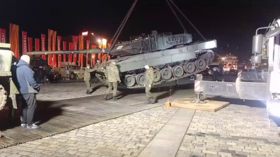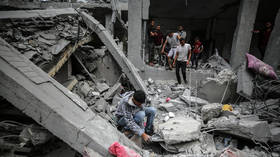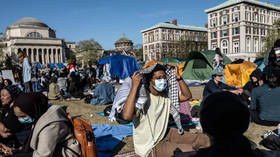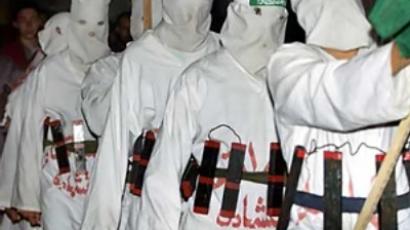Law enforcers pursue possible causes of Moscow bombings
The death toll from the bomb attacks on two Moscow underground stations has reached 39 people. More than 70 others were injured in the explosions during the crowded morning rush hour.
Many of those wounded remain in a critical condition. Tuesday, 30th March, has been declared a day of mourning in the Russian capital.
Officials say the explosives were detonated by two female suicide bombers likely to be connected with North Caucasus terrorist groups.
“We consider this the main version of events, as the bodies of two female suicide bombers who were residing in the North Caucasus were found at the scenes,” said the director of the Federal Security Service, Aleksandr Bortnikov.
The two Metro stations targeted were Lubyanka and Park Kultury – both in the center of Moscow.
- The Moscow underground system, on average, carries 7 million people per day.
- On work days the number often surpasses 9 million passengers, making it one of the busiest Metro's in the world.
- Daily, more than 500 trains make over 10,000 journeys through the system, which consists of 12 lines and 180 stations.
Russia's Federal Security Service says the women used explosives packed with bolts and iron rods to hurt as many people as possible.
Moscow City Public Prosecutor Yury Semin set forth the sequence of events:
“At 7:52am, following the train’s arrival at Lubyanka Metro station, while passengers left the train and another set of passengers walked in, a blast occurred. Its power was equal to about two kilos of TNT. We can assume that the explosive device was attached to the attacker’s body.
“About half an hour later, another blast hit the Park Kultury station. Explosive experts are currently investigating the circumstances. The injured people have been evacuated from the scene and are being given treatment. It is not the right time to give the exact number of fatalities.”
Arkady Livshits, a security expert and head of a company that develops devices to find explosives, says it's unlikely the suicide bombers acted alone: “The metro is a large system and a very convenient target for terror attacks. Most probably it was suicide bombers at both metro stations because both blasts happened in a crowd. And it would have been hard to place anything there without being noticed. I think it’s highly probable the explosions were caused by radio signal, maybe using mobile networks. This is likely because those behind terror attack don’t trust the bombers enough.”
Earlier, news agencies reported a third explosive belt to have been found at the Park Kultury Metro station, but police refuted this claim.
Oleg Yelnikov, spokesman for the Ministry of Internal Affairs, stated that, “Due to the terrorist acts, Moscow police have been put on high alert. Supplementary measures to maintain security in public places are being implemented. The number of police patrols has been increased. We are urging everyone to report immediately if they see any suspicious objects or people.”
Rescue efforts
There have been reports that the suicide-bombers had different targets in mind but got lost in the Metro.
CCTV footage shows the two suicide bombers entering the Yugo-Zapadnaya Metro station – along with two other women of Slavic appearance.
According to sources, the intended targets of the attacks were the Interior Ministry near the Oktyabrskaya Metro station and the Federal Security Service building near Lubyanka.
The terrorists may have lost their way in the Metro and been forced to change targets.
The police are currently searching for the women, one about 25 years old and another 40, who they think assisted in the bombing, as well as a 30 year old man with a beard.
Bortnikov announced that the bombing was allegedly carried out by “terror groups related to the North Caucasus.”
It’s been a very intense day for the Emergencies Ministry, which had to assure people were promptly evacuated from the scenes of the tragedy and all the injured taken to hospitals.
As it was necessary to make way for the rescue equipment and ambulances, some of the roads were blocked.
That, in turn, created a major traffic crisis in the capital, where millions of people commute to work each day.
“All services have been very efficient and all the victims have been moved to 12 hospitals,” – reported Emergencies Minister Sergey Shoigu. “All emergency services took part, including 342 personnel, 100 vehicles and 2 helicopters that delivered the injured to hospitals. Everything that could be done on the part of the Emergencies Ministry and the Health Ministry is being done, including insuring that they have enough blood supplies and medicine. All the hotlines are open and relatives have been calling a lot. We have also insured that the people that have been using the metro or other means of public transport are well informed of the situation.”
Some taxi drivers tried to take advantage of the situation and raised fares more than ten-fold. This caused widespread public anger and prompted Prime Minister Putin to address small businesses, asking them not to profit from other people's dire need.The call was heard among the web community, as bloggers got into their cars and offered people rides for no payment.
130 free buses were laid on to shuttle people along the route normally served by the closed Metro section.
All stations have since been reopened.
Read also: Moscow in panic after two explosions in the Metro













